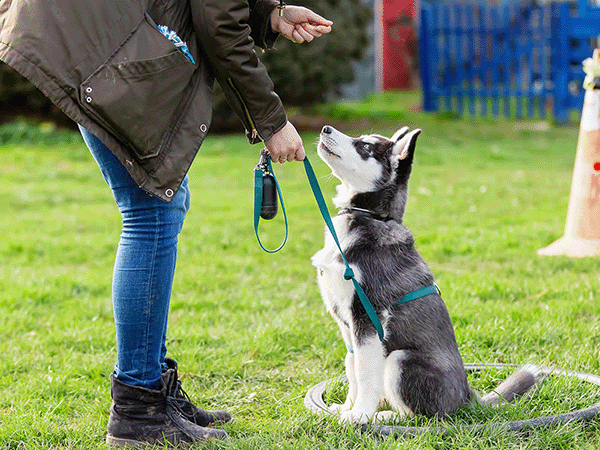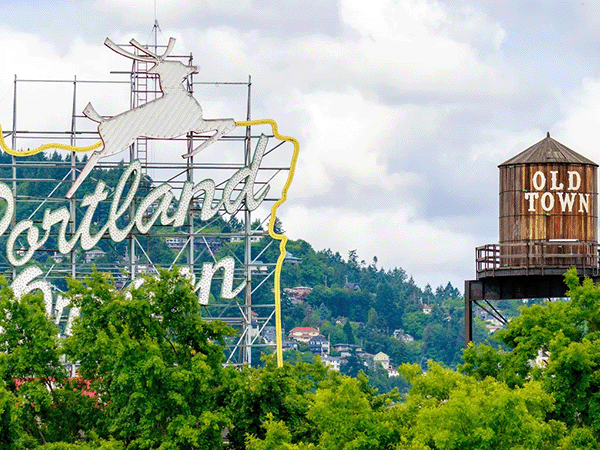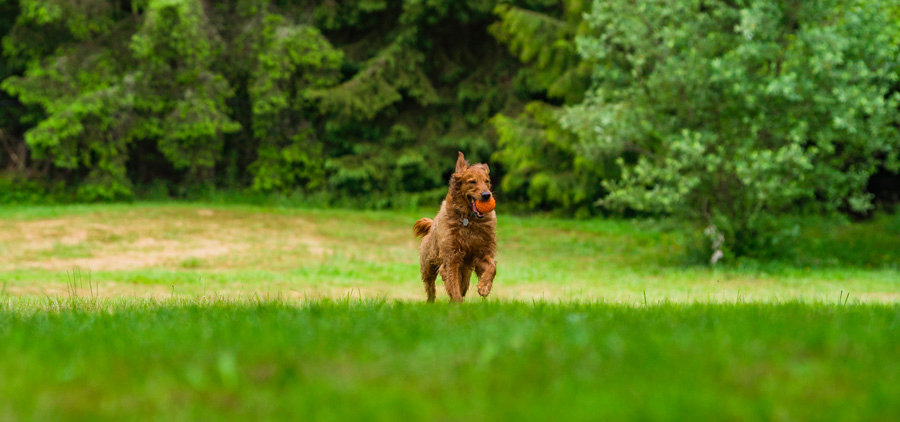Golden Retriever Advice: The Complete Owner's Guide

Golden Retrievers: they're gorgeous, playful, and incredibly popular. But before you welcome one into your home, you need the right golden retriever advice. This guide draws on the wisdom of nearly 10,000 Golden Retriever owners, offering practical tips for caring for these affectionate dogs. From understanding their high energy levels to mastering grooming and training, we'll cover everything you need to know. So whether you're already a devoted Golden parent or just starting your research, get ready to learn how to give your furry friend the best possible care.
In this post, we share insights from almost 10,000 Sniffspot users, offering practical advice for new and prospective Golden Retriever owners. Whether you’re considering owning or rescuing a Golden Retriever yourself or already have one, you’ll find valuable tips on how to care for and enjoy life with an affectionate Golden Retriever, including their care requirements, exercise needs, and how to manage pet hair.
As Sniffspot user Jacqueline says, “I love everything about my Golden! I have no idea how I got so lucky! He is the most loving, caring, affectionate dog I’ve ever owned.”
Source: Sniffspot Community Breed Survey 2024
Golden Retriever Essentials: At a Glance
- Breed Type: Sporting
- Size: Large
- Life Expectancy: 10 – 12 years
- Healthy Weight Range: 55 – 75 lbs
- Height Range: 21 – 24 in
- Temperament: Affectionate, Playful, Trainable
- Coat Type: Double
- Color: Gold (in various shades from light to dark)
Getting to Know the Golden Retriever
According to 422 Sniffspot community users who shared real-world data about their Golden Retriever, we learned these dogs are affectionate, playful, and trainable. The Golden Retriever is very friendly and social with strangers and very friendly and social with children, making them one of the most dog-friendly breeds and ideal as affectionate family dogs.
When living with a Golden Retriever, 82% of our owners said a large house with a fenced yard is the best environment. Additionally, 34% of owners said a rural or suburban area with open spaces is also acceptable. Creating a comfortable environment for your Golden is crucial for their well-being and can help prevent boredom-driven behaviors.
This AKC breed is highly trainable, learns commands quickly, and responds well to training. Owners say the Golden Retriever learns best with positive reinforcement (treats, praise, rewards), socialization with other dogs and people, and consistent daily training routines. Additional training can help manage common behavior issues and enhance their role as companion dogs.
When it comes to exercise, 57% of Sniffspot owners say their Golden Retriever benefits from moderate amounts of physical exercise, like regular walks and play sessions. As one of the active breeds, Goldens require both physical exercise and mental exercise to maintain a healthy body condition and prevent boredom-driven behaviors. The Sniffspot Golden Retriever community would recommend this dog breed to first-time dog owners, but emphasize the importance of understanding their exercise needs and care requirements.
Key Takeaways
- Golden Retrievers thrive on affection, playtime, and training: Their loving personalities shine with consistent training, socialization, and a balance of physical and mental activities. Explore Sniffspot's resources for training advice and dog-friendly locations.
- Grooming is key for these double-coated dogs: Regular brushing and occasional professional grooming are essential to manage shedding and keep their coats healthy.
- Plan for an active routine: Goldens are energetic and need ample exercise and mental stimulation through walks, playtime, and engaging activities. Sniffspot can help you discover local dog parks and other great spots for your Golden.
Golden Retriever Temperament and Traits
We compiled almost 10,000 total Sniffspot community submissions on their own dog breeds to determine these Golden Retriever dog traits and characteristics.
- Temperament: Affectionate, Playful, Trainable,
- Energy Level: Moderate
- Trainability: Highly trainable
- Coat grooming needs: Moderate maintenance
- Good with Kids: Very friendly and social with children
- Good with Other Pets: Very friendly with other pets

Tanner Vines on Unsplash
Are Golden Retrievers Affectionate?
Golden Retrievers are renowned for their affectionate demeanor, making them one of the most beloved companion breeds. According to insights gathered from nearly 10,000 Sniffspot community users, these dogs are characterized as “affectionate, playful, and trainable.” Their friendly and social nature extends not only to their families but also to strangers and children, solidifying their reputation as ideal family pets. As one Sniffspot user expressed, “I love everything about my Golden! I have no idea how I got so lucky! He is the most loving, caring, affectionate dog I’ve ever owned.” This sentiment is echoed by many owners who appreciate the breed’s gentle and loving disposition.
This inherent friendliness also makes them excellent candidates for dog parks and other social settings. If you're looking for opportunities to socialize your Golden, check out Sniffspot's listings for dog-friendly locations near you. Many Goldens also enjoy the company of other dogs, so visiting a Sniffspot can be a great way to let your furry friend burn off some energy and make new pals. For those considering adding a Golden Retriever to their family, exploring resources on dog names and training can be helpful.
Golden Retrievers thrive on companionship and are known to form strong emotional connections with their owners, making them not just pets, but cherished family members. Their temperament is consistently described as "very friendly and social," highlighting their ability to bond closely with humans and other pets alike.
Origins of the Golden Retriever
The Golden Retriever’s history begins in early 19th-century England, a wealthy Scottish banker. Known later as the 1st Baron Tweedmouth, Marjoribanks created the breed in 1868 by crossing a yellow-coated retriever with a Tweed Water Spaniel. Dudley Marjoribanks’ meticulous breeding records provide a clear lineage for the Golden Retriever, making it one of the best-documented breeds in the Kennel Club’s history.
Despite the eventual decline of Marjoribanks’ grand estate, the Golden Retriever’s popularity endured. The breed’s exceptional biddability and versatility have led it to excel in modern roles beyond hunting, including as an obedience competitor, guide dog, and search-and-rescue partner. Its athletic build and friendly demeanor make it well-suited for a variety of tasks and activities.
From its inception, the Golden Retriever has been a top performer in various roles. Its combination of intelligence, calm temperament, and athletic prowess has made it a favorite for many modern activities, including obedience, tracking, show competitions, and assistance work. The breed’s appearance reflects its capabilities, with no aspect of its makeup detracting from its working abilities.
Golden Retriever Ownership: What to Expect
As a Golden Retriever owner, it’s important to know the best dog breed tips as well as expectations from current Golden Retriever owners. Understanding their needs as one of the cold-weather breeds can help you provide the best care for your Golden.

Source: Sniffspot Community Breed Research 2024
Grooming Your Golden Retriever
Golden Retriever dogs require moderate maintenance grooming. This means Golden Retriever owners should expect regular brushing and periodic baths. Golden Retrievers have a double coat type, ideal for swimming and protection in cold weather. Their double coat is considered high shed, producing a significant amount of pet hair.
To keep your Golden Retriever’s coat healthy and up to breed standards, include brushing in their daily routine and get seasonal professional grooms. Of the various kinds of canine coats for common breeds in the sporting group, the coat grooming needs for Golden Retrievers are considered moderate maintenance. Regular grooming not only keeps their coat healthy but also provides an opportunity for bonding and checking for any skin issues.
Exercise Needs: Is Your Golden Retriever High Energy?
Golden Retrievers require moderate to high activity each day. As one of the most popular dog breeds and high-energy breeds, Goldens are considered very athletic and thrive on regular exercise.
Goldens make great pets, and they flourish with between 1-2 hours of physical activity each day, including walks and active play sessions. Daily exercise is crucial for maintaining their body condition and preventing weight gain. Owners of Goldens report their dogs especially love playing with squeaky toys, chasing/playing with a ball or frisbee, and tug-of-war. These activities not only provide physical exercise but also mental stimulation.
When large breeds like Goldens don’t get sufficient exercise, they’re more likely to act out with undesirable behaviors like excess barking or destruction. They need consistent training, mental exercise, and regular physical exercise to avoid excess energy. Incorporating brain exercise and enrichment activities into their daily routine can help prevent boredom-driven behaviors.
Golden Retriever Diet and Nutrition
What should you feed your Golden Retriever to keep him healthy? As a moderate to high-energy breed, what you feed them is important. A reported 61% of our community feeds their Golden commercial dry kibble.
With regular exercise, Goldens should eat between 2 and 3 cups of vet-recommended food to maintain a healthy weight of around 55 – 75 lbs. However, your Golden Retriever’s ideal weight and daily food intake depend on your pet’s sex, activity level, and age. Monitoring their body condition and adjusting their diet accordingly is crucial for maintaining their health and life expectancy.
Golden Retriever Health Concerns
The Golden Retriever breed is most prone to ear infections and skin conditions (e.g., allergies, dermatitis). A reported 46% of our Golden Retriever owners reported ear infections caused by allergies, ear mites, or contact dermatitis. Golden’s risk for these challenges increase as they age.
Similarly, 42% reported skin conditions like allergies, yeast infections, impetigo, ringworm, alopecia, and folliculitis. Lastly, 34% of Golden Retriever owners claim their dog struggles with joint problems like arthritis, elbow dysplasia, degenerative issues, and osteosarcoma — common Golden health concerns.
Regular veterinary check-ups, including dental care, can help manage these breed health concerns. If you’re worried about any of these health issues, talk to your Golden’s vet.
Cost of Owning a Golden Retriever
Golden Retrievers are wonderful companions, but they do come with a financial commitment. Knowing the potential costs upfront can help you prepare and budget accordingly. Like any pet, expenses can vary based on individual needs, your location, and unexpected health issues.
Initially, expect to spend between $1,000 and $3,500 when purchasing a Golden Retriever puppy from a reputable breeder. This price often reflects the health testing done on the parents and the breeder's experience, as explained in this Golden Retriever puppy cost breakdown. Adoption is a wonderful alternative and typically less expensive, although there will still be fees involved.
Beyond the initial purchase price, annual expenses for a Golden Retriever can range from $1,500 to $2,500. This covers essentials like high-quality food, regular vet checkups, grooming to manage that gorgeous golden coat, and potentially training classes, as detailed in this guide to Golden Retriever costs. Remember, keeping your Golden active and engaged is key, so factor in costs for toys, treats, and enrichment activities, and check out Sniffspot for dog parks and other fun places to visit.
Thinking long term, the lifetime cost of owning a Golden Retriever can add up. Estimates, excluding the initial adoption or purchase fee, range from roughly $19,050 to $57,600, according to iHeartDogs. This considerable range highlights the importance of budgeting for potential health issues and unexpected vet bills as your furry friend gets older. Resources like this guide on Golden Retriever ownership costs can help you understand the various expenses involved.
Golden Retrievers: Affectionate Nature?
Another important thing to consider when adopting a Golden is whether or not they fit with your current family. How friendly are Golden Retrievers compared to other large-sized breeds?

Source: Sniffspot Community Breed Survey 2024
With consistent training, you can hone your Golden’s working instinct into a fun and loving family dog. Introducing your pet to positive reinforcement (treats, praise, rewards) and socialization with other dogs and people early helps them avoid undesirable behaviors like excessive excitement, jumping, and destructive chewing. Our community Golden Retriever owners comment on their pet’s friendliness:
- “Friendly with everyone, affectionate, feels like part of the family.” (Miranda)
- “They are so friendly and LOVE their owners. They just really want to please.” (Brianna)
Golden Retrievers are known for their friendly nature, making them excellent additions to family households. Their gentle temperament and patience with children make them one of the most dog-friendly breeds available.
Training Your Golden Retriever
Whether you’re adopting a Golden puppy or a grown Golden Retriever adult, training is a large part of owning this popular breed. When you fail to train your Golden properly, they’re more likely to display undesirable behaviors like excessive excitement, jumping, destructive chewing, and so on. Providing stimulating enrichment activities is a great first step, but this needs to be paired with the right training for your Golden.
As a sporting breed, Golden Retrievers benefit from praise and positive reinforcement. Here’s what our Golden community recommended based on their experience with their own dog:
- Positive Reinforcement (96%): This includes treats, praise, rewards, and so on for positive behavior.
- Socialization (47%): Socializing your dog with other pets, dogs, and people prepares them to interact with the world.
- Consistent Routines (45%): A consistent training routine allows your pet to get comfortable with expectations.
As dogs bred for hunting and retrieving game, Goldens are considered highly trainable by all types of dog owners. Understanding their behavior in puppies can help you start training early and prevent common behavior issues as they grow.
Puppy Training Tips
Training a Golden Retriever takes time and dedication—sometimes up to two or three years! It's a marathon, not a sprint. Start early with puppy training classes that focus on teaching *you* how to train your dog. A well-behaved Golden is a result of consistent owner effort, not just breed predisposition. Remember, you're building a foundation for a lifetime of companionship.
Socialization is key, especially during puppyhood. Expose your puppy to a variety of people, places, and animals early and often. This helps prevent fear and aggression later in life and sets them up for success in various social situations. Think of it as building their confidence and comfort level with the world around them. Early exposure to safe dog parks can be a great way to socialize your puppy in a controlled environment.
Enrolling in puppy classes should be a top priority. These classes provide a structured learning environment for both you and your puppy. You'll learn valuable training techniques, and your puppy will get the chance to socialize with other puppies. It’s a win-win! Early training and socialization are crucial for shaping your Golden Retriever puppy into a well-adjusted adult dog. Consider these early experiences investments in your puppy's future.
Adult Golden Retriever Training
Even though Golden Retrievers are known for their eager-to-please nature, adult Goldens still require consistent training. Don't think training stops after puppyhood. Regular reinforcement of basic commands and good manners is essential for maintaining a well-behaved companion. Think of it as staying sharp—practice makes perfect!
Golden Retrievers are energetic dogs that need both mental and physical stimulation. Providing stimulating enrichment activities is a great first step, but pair this with the right training. A tired Golden is a happy Golden! A combination of physical exercise and mental challenges will keep them fulfilled and prevent boredom-driven destructive behaviors. Sniffspot offers a variety of locations perfect for exercising your Golden, both physically and mentally.
Remember, Golden Retrievers were originally bred for hunting and retrieving game, so they're naturally inclined to learn and work alongside their owners. This makes them highly trainable. Take advantage of their intelligence and willingness to please by incorporating training into your daily routine. Even short training sessions can make a big difference in reinforcing good behavior and strengthening your bond. Consistency is key for a happy, well-adjusted Golden Retriever.
Why Golden Retriever Owners Love Their Dogs
We asked Sniffspot Golden dog owners what they love the most about their Golden Retriever pups, and here’s what they had to say:
- “So smart and sweet. Often chooses cuddles and love over food. Wants to be near us all the time.” (Lizzie)
- “They love attention, are very affectionate, and want to please.” (Sarah)
- “Her natural disposition is to be a friend to everyone. She is always very excitable and only wants to give and receive affection” (A.)
- “Our Golden fits perfectly into our daily life. Whether we’re relaxing at home or out for a hike, he’s always up for anything. His adaptability and loving nature make him an irreplaceable part of our family.” (Mark)

Angel Luciano on Unsplash
Challenges of Golden Retriever Ownership
Similarly, Golden owners shared some of the biggest challenges of living with Golden Retriever:
- “Working dogs need lots of activity and stimulation.” (HM)
- “The shedding can be a bit of a hassle, but it comes with the territory. I’d rather clean and vacuum every day than not have him.” (Jacqueline)
- “Their sociability. If you don’t have a nice balance during the puppy exposure stage, you risk ending up with an adult dog who thinks they can and has to meet every dog/person. Which results in frustration/reactivity on the leash.” (MW)
- “Managing their high energy levels can be challenging. They need a lot of physical activity and mental stimulation to stay happy and well-behaved. But with regular exercise and enrichment activities, they’re a joy to have around.” (Emily)
- “The amount of pet hair can be overwhelming at times. Regular grooming and investing in a good vacuum cleaner are must-haves for Golden owners!” (David)
Golden Retrievers for First-Time Owners?

Source: Sniffspot 2024 Community Dog Breed Survey
According to 97% of our Sniffspot community, Golden Retrievers are a great first-time dogs. This comes from their affectionate nature and moderate exercise needs. Golden Retriever owners say it best:
- “Her natural disposition is to be a friend to everyone. She is always very excitable and only wants to give and receive affection” (S)
- “They are the most affectionate and people-oriented dogs” (K)
- “Though they can benefit from additional training, these are pretty easy dogs!” (Anon)
- “Their loving nature and overall friendliness to anyone and anything” (Brittany)
While Goldens are great for first-time owners, it’s important to understand their exercise needs and grooming requirements. Pet owners should be prepared for regular exercise routines and managing pet hair as part of their daily life with a Golden.
Preparing for a Golden Retriever Puppy
Bringing a Golden Retriever puppy home is pure joy, but responsible pet ownership begins with preparation. A little planning ensures a smooth transition for both you and your new furry family member. Here’s what to consider before welcoming your Golden puppy:
Training and Socialization
Start training early. Puppy classes are invaluable—they focus on teaching *you* how to train your dog effectively. A well-behaved Golden is a product of consistent training and owner dedication, not just breed instincts. Training takes time (think two to three years), so patience and persistence are essential.
Early socialization is equally important. Expose your puppy to various people, places, sounds, and other animals. These early experiences help your Golden develop into a confident, well-adjusted adult, preventing potential fear or aggression. Sniffspot offers safe, controlled environments perfect for introducing your puppy to new situations.
Exercise and Enrichment
Golden Retrievers are energetic. Plan for at least one to two hours of daily exercise, including walks, playtime, and other activities. Sniffspot's research confirms that Goldens thrive on physical activity. This keeps them healthy, burns excess energy, and prevents boredom-related behaviors.
Mental stimulation is also key. Puzzle toys, training games, and even fetch can keep your Golden mentally engaged. Check out our resources on dog enrichment for more ideas.
Grooming
Be prepared for regular grooming. Golden Retrievers have a thick double coat that sheds, especially with changing seasons. Sniffspot's research indicates Goldens require moderate maintenance grooming, including brushing and occasional baths. Regular brushing helps manage shedding and keeps their coat healthy.
Puppy-Proofing Your Home
Before your puppy arrives, create a safe home environment. Puppy-proofing involves removing anything your Golden might chew on: electrical cords, shoes, toxic plants, and trash cans. A safe space provides peace of mind for both of you.
Health Considerations
Be aware of potential health issues common in Golden Retrievers. Hip and elbow dysplasia, eye problems, and certain skin conditions can occur. Choosing a responsible breeder who screens their dogs minimizes these risks. Regular vet checkups are crucial for maintaining your Golden's health. Find a vet experienced with Golden Retrievers and their specific needs. Sniffspot can help you find top vets in your area.
Addressing these key areas before your Golden Retriever puppy arrives sets you up for success. You'll be prepared to provide a loving, supportive environment where they can thrive. Puppy parenthood has its challenges, but the unconditional love and rewarding moments make it all worthwhile.
Golden Retriever Owner Advice
Luckily, our Sniffspot community is full of experienced, trustworthy Golden owners. These Golden Retriever breed owners share the most essential dog breed tips and advice for prospective or new dog owners:
Shedding and Grooming Tips for Golden Retrievers
- “Do not let the shedding and hair give your despair. (hey, that rhymes!)” (Deb)
- “Goldens shed A TON. Don’t be surprised and don’t shave them.” (AW)
- “Invest in good grooming tools and make brushing a regular part of your routine. It not only helps manage shedding but also provides great bonding time with your Golden.” (Laura)
- “Consider professional grooming every few months, especially during heavy shedding seasons. It can make a big difference in managing pet hair in your home.” (Robert)
Finding Your Golden Retriever: Breeders and Rescues
- “Make sure the breeder is responsible and doing DNA checks before breeding to help alleviate breed-specific issues.” (Kasey)
- “Work with a reputable, responsible breeder who will do all the proper testing and health certifications to do all that is possible to help ensure a healthy litter. Let the breeder select the puppy for you to match your experience and living situation. Do not buy a puppy off the web!” (GJ)
Early Training for Golden Retrievers
- “Prioritize training as a puppy, they get too smart when they’re older.” (Becca)
- “Be vigilant. Goldens understand commands and grasp training quickly, but because they are so friendly they will forget their training when they see other animals or people that they want to meet. Keep training, progress not perfection and it will come.” (KK)
Exercise for a Happy Golden Retriever
- “Don’t underestimate the importance of both physical and mental exercise for your Golden. Regular walks, play sessions, and brain games like puzzle toys can help keep them happy and well-behaved.” (Sarah)
- “Incorporate enrichment activities into your daily routine. Things like food puzzles, scent work, or training sessions can provide the mental stimulation they need.” (Michael)
- “Regular exercise needs to be a daily priority! As one of the high-energy breeds, you need to make this a MUST in your routine with your Golden.” (Susan)
Finding Dog Parks and Safe Spaces for Your Golden Retriever
Golden Retrievers, with their playful energy and love for the outdoors, thrive in environments where they can run, play, and socialize. Finding the right dog parks and safe spaces for your Golden is essential for their physical and mental well-being. Remember, Goldens are energetic dogs who benefit from at least 1-2 hours of exercise daily, as our Sniffspot research shows. This includes walks, active play sessions, and opportunities to interact with other dogs.
National and state parks often offer beautiful trails and open spaces perfect for a hike with your Golden. These locations provide fresh air, stunning scenery, and a chance for your dog to explore and enjoy nature. Just be sure to check the specific park's rules regarding dogs, as some may require leashes or have designated off-leash areas. Sniffspot can also help you discover hidden gems and local favorites.
Dedicated dog parks are another excellent option, offering a safe and controlled environment for your Golden to socialize and play off-leash. When choosing a dog park, consider factors like size, fencing, and the presence of water features—especially since Goldens love to swim! It's also a good idea to visit the park at different times of day to gauge the typical crowd and ensure it's a good fit for your dog's temperament.
Beyond parks, consider incorporating other safe spaces into your Golden's routine. A securely fenced backyard can provide a private area for play and exercise. If you live in an urban environment with limited access to parks, consider urban walks, visits to dog-friendly stores, or even enrolling your Golden in activities like agility or obedience classes to provide physical and mental stimulation. Remember, a tired Golden is a happy Golden, and providing them with a variety of enriching experiences will contribute to their overall health and happiness.
Frequently Asked Questions about the Golden Retriever
Golden Retriever Resources
Bringing a Golden Retriever into your life is a big decision! To help you prepare, we've compiled some helpful resources based on advice from experienced Golden owners in the Sniffspot community. From finding the right breeder to managing that famous Golden Retriever shedding, these tips will set you up for success.
Shedding and Grooming
Let's be honest, Goldens shed. A lot. As AW wisely points out, "Goldens shed A TON. Don’t be surprised and don’t shave them." Accepting this reality is the first step. The good news is that managing the fluff is totally doable. Laura recommends investing in good grooming tools and making brushing a regular part of your routine. This not only minimizes shedding but also strengthens the bond with your furry friend. For a truly deep clean, Robert suggests considering professional grooming every few months, especially during shedding season. This can make a world of difference in keeping your home fur-free (or at least, fur-managed!).
Finding Your Golden Retriever
Finding a healthy, happy Golden starts with choosing a responsible source. Whether you're looking to buy a puppy or rescue a deserving dog, doing your research is key. Kasey emphasizes the importance of finding a breeder who prioritizes health testing, including DNA checks, to minimize breed-specific health issues. GJ adds another layer of wisdom, advising prospective owners to "Work with a reputable, responsible breeder who will do all the proper testing and health certifications… Let the breeder select the puppy for you to match your experience and living situation." Remember, a good breeder cares about the well-being of their dogs and will be a valuable resource throughout your Golden's life. If you're open to rescuing a Golden Retriever, check out local shelters and rescue organizations. You can find a wonderful companion and give a deserving dog a loving home. Avoid buying a puppy online – it's important to meet the dog and assess their environment beforehand.
Early Training
Golden Retrievers are intelligent and eager to please, which makes them highly trainable. However, as Becca wisely notes, "Prioritize training as a puppy; they get too smart when they’re older." Starting early establishes good habits and sets the foundation for a well-behaved companion. KK offers a valuable reminder: "Be vigilant. Goldens understand commands and grasp training quickly, but because they are so friendly, they will forget their training when they see other animals or people that they want to meet." Consistency is key! Continue reinforcing training throughout their life, focusing on progress over perfection. Positive reinforcement methods, like those recommended in this article, work wonders with Goldens. Check out Sniffspot's list of top dog trainers for additional support and guidance.
Exercise
Golden Retrievers are energetic dogs that need regular exercise to stay happy and healthy. Don't underestimate their need for both physical and mental stimulation. Sarah recommends, "Don’t underestimate the importance of both physical and mental exercise for your Golden. Regular walks, play sessions, and brain games like puzzle toys can help keep them happy and well-behaved." Susan echoes this sentiment, emphasizing that "Regular exercise needs to be a daily priority!" Sniffspot offers a variety of dog parks and off-leash areas where your Golden can run, play, and socialize. For water-loving Goldens, consider visiting a dog-friendly water park for a refreshing and enriching experience.
Golden Retriever Lifespan
The average life expectancy of a Golden Retriever is typically between 10 – 12 years, according to the Kennel Club.
Golden Retriever Size and Growth
An adult Golden Retriever weighs between 55 – 75 lbs pounds and stands between 21 – 24 in tall.
Golden Retriever Grooming Needs
Golden Retriever dogs require moderate maintenance grooming. Regular grooming helps to keep their coat healthy and manageable. Golden Retriever dogs have a double coat, which is well-suited for insulation and protection. They are considered high shedders.
To maintain your Golden Retriever’s coat, it’s important to brush them regularly and brush regularly to manage shedding and prevent mats. Among sporting breeds, Golden Retriever grooming is categorized as expected.
Golden Retriever Exercise Requirements
Golden Retrievers require moderate to high activity each day. As one of the active breeds recognized by the AKC, Goldens are classified as athletic and energetic.
Goldens are excellent companions and flourish with between 1-2 hours of physical exercise each day, including walks and active play sessions. This regular exercise is crucial for maintaining their body condition and preventing obesity-related health issues. Owners of Goldens note that their dogs particularly enjoy chasing/playing with a ball or frisbee, playing with squeaky toys, and tug-of-war.
If active breeds like Goldens don’t receive enough exercise, they may develop unwanted behaviors. These dogs need ongoing training, mental stimulation, and consistent physical activity to channel their energy effectively.
How can I provide mental stimulation for my Golden Retriever?
Golden Retrievers are intelligent dogs that benefit from mental exercise as well as physical activity. Here are some ways to provide mental stimulation:
- Puzzle toys and food dispensers
- Training sessions to learn new tricks
- Scent work activities
- Interactive games like hide-and-seek
- Obedience or agility training
These brain exercises can help prevent boredom-driven behaviors and keep your Golden happy and well-adjusted in their daily life.
Golden Retrievers and Children
According to our data, Golden Retrievers are very friendly and social with children.
Golden Retrievers with Other Pets
Our research indicates that Golden Retrievers are very friendly with other pets with other pets.
Feeding Your Golden Retriever
As a moderate energy breed, the diet of your Golden is crucial. A significant 66% of our community feeds their Golden commercial dry kibble.
For optimal health, Goldens should consume 2 to 3 cups of vet-recommended food to maintain a healthy weight of around 55 – 75 lbs pounds. The exact amount of daily food intake and type of food will depend on your Golden Retriever’s sex, activity level, and age.
Common Golden Retriever Health Issues
The Golden Retriever breed is particularly prone to digestive issues and skin conditions like allergies, yeast infections, impetigo, ringworm, alopecia, and folliculitis. Our data shows that 28% of Golden Retriever owners reported digestive issues like constipation, diarrhea, vomiting, and lack of appetite. Golden’s risk for these health issues increases as they age.
Additionally, 22% reported skin conditions like allergies, yeast infections, impetigo, ringworm, alopecia, and folliculitis. Finally, 20% of Golden Retriever owners indicated their dog struggles with joint problems like arthritis, elbow dysplasia, degenerative issues, and osteosarcoma, which are common Golden health concerns. If you have concerns about any of these health issues, consult your Golden’s veterinarian.
Resources for Golden Retriever Owners
Whether you’re a current Golden Retriever dog owner or you’re considering adopting a Golden, Sniffspot is here to lend a helping hand. Here are some of the most relevant resources for Golden Retriever owners:
- Golden Retriever Club of America (the AKC breed club for Goldens)
- Most Popular Golden Retriever Names
- How to Train Your Golden Retriever
- Best Golden Retriever Dog Rescues and Shelters
- AKC Breed Standards for Golden Retrievers
Remember, while Goldens are generally healthy dogs, regular check-ups with your veterinarian are essential to catch and address any potential health issues early. With proper care, exercise, and love, your Golden Retriever can be a joyful and loyal companion for many years to come.
Sources:

Most recent articles
Related articles
Top dog guides per area
Dog training guides

Dog Food Aggression: Why You Shouldn't Punish It
Does your dog ever growl when you walk by their food dish? Maybe they get possessive of treats, carrying them far away and giving you side-eye when you start to approach — or snarling at your other pets or children if they get too close.

Best Dog Fields in the US: 25+ Wide-Open Spaces for Your Pup to Run Free
The best dog fields in the US offer something that traditional enclosed parks simply can't match: acres of open space where your pup can truly stretch their legs and run at full speed. From Colorado's 470-acre prairie meadows to Tennessee's award-winning "Outback," these wide-open spaces allow dogs to roam, explore, and exercise naturally while engaging instincts that cramped urban parks suppress.

The Ultimate Guide to Scent Training for Dogs
Your dog's nose is an amazing tool. Did you know they have 40 times the olfactory receptors than humans? Scent training for dogs taps into this superpower, turning everyday moments into exciting sniff-fests. It's enriching for all types of dogs – reactive, shy, or simply adventurous. Ready to explore the world of scent work for dogs? Let's get started.

Service Dog Training Costs: DIY vs. Pro
More than 80 million Americans rely on their service dogs to help them navigate the world. Task-trained assistance animals perform a huge range of life-changing—in many cases, life-saving—services: These dogs act as eyes for visually impaired handlers, provide mobility support, alert to seizures and blood sugar crashes, interrupt anxiety attacks, remind their people to take medications, and so much more.

How to Deal With Puppy Potty Training Regression

Dirty Dog Syndrome: Causes, Solutions, and Prevention
It's a cringe-worthy moment every dog owner dreads: your furry friend chowing down on something truly disgusting. If your dog has a penchant for poop, you're dealing with coprophagia. It's more common than you think, and thankfully, often manageable. This article explores the reasons behind dirty dog syndrome, from instinct to learned behavior. We'll also give you practical tips to help break this unpleasant habit.

How to Train Your Rescue Dog: A Complete Guide
* All Sniffspot articles are reviewed by certified trainers for quality, please see bottom of article for details *
Dog enrichment guides

Best Dog Water Parks in the US: 15+ Amazing Splash Destinations for Your Pup
Do you have a water-loving dog looking to burn some energy? There are countless dog parks to visit throughout our country — but some of them become far too hot in the midday sun to be safe for your pets to play. That’s why we’ve put together a list of some of the best dog water parks throughout the United States! At these locations, your pup can frolic, splash, and swim to their heart’s content.

Best Dog Fields in the US: 25+ Wide-Open Spaces for Your Pup to Run Free
The best dog fields in the US offer something that traditional enclosed parks simply can't match: acres of open space where your pup can truly stretch their legs and run at full speed. From Colorado's 470-acre prairie meadows to Tennessee's award-winning "Outback," these wide-open spaces allow dogs to roam, explore, and exercise naturally while engaging instincts that cramped urban parks suppress.

Best Toys for Herding Dogs: Keeping Your Pup Happy & Engaged
Herding dogs are amazing, intelligent companions. But that also means they need more than just a simple game of fetch. Finding the right toys for herding dogs is key to keeping them happy and stimulated. This article explores some of the best toys for herding dogs, including options specifically for breeds like Border Collies and Australian Shepherds. We'll help you discover the perfect herding toys for dogs to tap into their natural instincts and keep them entertained for hours.

Tough Dog Toys for Aggressive Chewers: A Practical Guide
Does your dog destroy every toy you give them? Is your house littered with the remnants of plush toys? Are you tired of wasting money on "indestructible" dog toys for aggressive chewers that don't last? Then this post is for you. We'll cover everything you need to know about finding the best dog toys for aggressive chewers, so you can finally give your pup something safe, durable, and fun.

Daily Exercise Calculator: How Much Exercise Does Your Dog Need?
Everyone knows dogs need exercise, but how much is enough? Walks are great, but creating a truly balanced fitness plan means understanding your dog's specific needs. This post helps you develop a daily exercise calculator for your dog, considering breed, age, and lifestyle. We'll cover fun activities, understanding exercise intensity, and recognizing when your pup has had enough. Let's create a plan that keeps your dog happy and healthy!

Complete Guide To Herding With Dogs
* All Sniffspot articles are reviewed by certified trainers for quality, please see bottom of article for details *

Dog Enrichment Activities: The Ultimate Guide
Ever feel like your dog is restless or bored? They may be getting enough exercise, but still need more. That's where enrichment activities for dogs come in. Giving your dog opportunities to sniff, explore, and problem-solve can make a world of difference. Whether you have a puppy, adult, or senior dog, enriching their environment is key for their well-being. Let's explore how to add cognitive enrichment for dogs, even tailoring activities to your dog's breed with breed specific enrichment and fun enrichment games for dogs.
Dog reactivity guides

Rottweiler Aggression: Truth vs. Myth
Many dogs have gotten a bad reputation over the years for being "dangerous breeds." Rottweilers are among them. Like pit bulls and other large, blocky-headed types of dogs, these powerful and beautiful animals are often assumed to be aggressive.

Best Dog Fields in the US: 25+ Wide-Open Spaces for Your Pup to Run Free
The best dog fields in the US offer something that traditional enclosed parks simply can't match: acres of open space where your pup can truly stretch their legs and run at full speed. From Colorado's 470-acre prairie meadows to Tennessee's award-winning "Outback," these wide-open spaces allow dogs to roam, explore, and exercise naturally while engaging instincts that cramped urban parks suppress.

The Reactive Dog Chart: How to Calm Your Dog's Triggers
If your dog lunges, barks, or loses their mind at the sight of another dog, a stranger, or a bicycle, you’re living with a reactive dog (and you’re far from alone). Dog reactivity is one of the most common behavioral challenges dog owners face, and it can make even a simple walk feel stressful and isolating.

How to Socialize a Reactive Dog: A Step-by-Step Guide
Does your dog display reactivity to other pets or people—barking, lunging, or growling when they see their triggers? Whether they're a rescue still settling in, missed critical socialization as a puppy, or had a negative experience, you're not alone. Reactivity is one of the most common dog behavior concerns, and with the right approach, you can help your reactive dog feel calmer and more confident around their triggers.

What Is a Reactive Dog? The Complete Guide for Understanding and Helping Your Pup
Does your dog transform into a barking, lunging tornado the second they spot another dog across the street? You're definitely not alone. According to our research of over 4,000 dog owners, 66% of dogs show some signs of reactivity.

9 Best Online Communities for Reactive Dog Parents
Does your dog's reactivity make walks stressful? You're not alone. Many dog owners face similar challenges. This guide offers practical advice and support for managing reactivity, including finding the best online dog training for reactive dogs. We'll connect you with reactive dog support groups, share training tips, and explore resources like the best dog training app for reactive dogs. Let's build a stronger bond with your dog, together.
* All Sniffspot articles are reviewed by certified trainers for quality, please see bottom of article for details *
How To Groom a Reactive Dog
* All Sniffspot articles are reviewed by certified trainers for quality, please see bottom of article for details *
Sniffspot community guides

The State of Public Dog Parks Across the United States
From 2009 to 2020, there was a 40 percent increase in the development of public dog parks. Designated spots for canine exercise have become commonplace in every major city in North America — many pet owners won’t even consider renting an apartment that doesn’t have its own fenced-in pet area for their canine companions.

Best Dog Fields in the US: 25+ Wide-Open Spaces for Your Pup to Run Free
The best dog fields in the US offer something that traditional enclosed parks simply can't match: acres of open space where your pup can truly stretch their legs and run at full speed. From Colorado's 470-acre prairie meadows to Tennessee's award-winning "Outback," these wide-open spaces allow dogs to roam, explore, and exercise naturally while engaging instincts that cramped urban parks suppress.

How This Family is Affording Their Dream Property Through Renting it Hourly to Dogs
Thousand Oaks, California has been a safe haven for Sniffspot host, Jen, since childhood. Having grown up in busy Santa Barbara, Jen, an introvert from an early age, would seek out solitude and serenity away from tourists attractions and droves of people visiting from elsewhere. “My grandparents own 60 acres about a 30 minute drive from here, and I grew up spending every summer and every holiday visiting them on the ranch,” Jen explained. “In Santa Barbara, we wouldn't go to the beach on the weekend because that's where everybody was, so you'd find places off the beaten path where the tourists weren't. For me, the ranch was just my happy place.”

Host Tips: Ellen K. What Makes Sniffspot Successful for Me
Ellen is the host of Country Pasture Getaway, one of Sniffspot's most popular sniff spots. She has taken the time to write up the lessons she has learned about how to be a great sniff spot host.

How this Oregon Farmer is Making a Business From Renting Her Land to Dogs
Just 20 minutes outside of the busy city of Portland, Oregon, and settled right on the banks of the Columbia River, you’ll find what countless visitors have flocked to the area in search of – mountain views, crisp, clean air, and running water for miles. What you might not expect to find, however, is a hidden oasis designed just for dogs and their people, owned and operated by a farming couple and enjoyed by visitors on two legs, and four.

Host Tips: Fran T. Providing Great Guest Service at our Spot
Fran is the host of Ranch Setting, one of Sniffspot's most popular spots. She has taken the time to write up the lessons she has learned about how to be a great Sniffspot host.

How Sniffspot Helped a Nervous Rescue Work Through His Fears and Change His Family’s Life
This is the story of a family and dog rescuing each other.
Top dog trainers in the US

The Best Dog Trainers in the United States of 2026
This is a list of the top dog trainers in the United States, based on votes from the Sniffspot community and the general public.
The Best Dog Trainers in Seattle, WA of 2026
This is a list of the top dog trainers in Seattle, WA, based on votes from the Sniffspot community and the general public.
The Best Dog Trainers in Portland, OR of 2026
This is a list of the top dog trainers in Portland, OR, based on votes from the Sniffspot community and the general public.
The Best Dog Trainers in Los Angeles, CA of 2026
This is a list of the top dog trainers in Los Angeles, CA, based on votes from the Sniffspot community and the general public.
The Best Dog Trainers in New York, NY of 2026
This is a list of the top dog trainers in New York, NY, based on votes from the Sniffspot community and the general public.
City dog parks guides

Top 10 Indoor Dog Parks: A US Guide
Looking for a space to play with your dog no matter what the weather’s like outside? Look no further than our list of the best indoor dog parks in the United States! These climate-controlled spaces are growing in popularity as pet ownership increases throughout the country. As a bonus, many of them also offer dog training, boarding, grooming, or daycare services on the premises.

Best Dog Fields in the US: 25+ Wide-Open Spaces for Your Pup to Run Free
The best dog fields in the US offer something that traditional enclosed parks simply can't match: acres of open space where your pup can truly stretch their legs and run at full speed. From Colorado's 470-acre prairie meadows to Tennessee's award-winning "Outback," these wide-open spaces allow dogs to roam, explore, and exercise naturally while engaging instincts that cramped urban parks suppress.

Best Dog Parks in the US: Ultimate Guide to Public & Private Off-Leash Adventures
Is your pup giving you those pleading "let me run free" eyes? Whether you're a new dog parent or a seasoned pro looking for fresh adventures, finding the perfect off-leash paradise for your furry friend can feel ruff! From sun-soaked California beaches where your water-loving lab can make a splash to mountain trails in Vermont where your adventure buddy can chase every scent, we've sniffed out the 15 best dog parks across America.

Dog Parks Near Me: Las Vegas Edition
Looking for the perfect dog park near me in Las Vegas? You're in luck! This guide explores all the best options for your pup, from public dog parks to private dog parks near me on Sniffspot. We'll help you find the ideal spot for playtime, socializing, and fresh air. Plus, we'll cover essential etiquette and safety tips to ensure a happy visit for everyone. Get ready for some tail-wagging fun!

Top Sniffspot Locations: Find the Perfect Dog Park
Looking for the perfect dog park? Whether you need a wide-open public space or a private, fenced-in spot, this guide will help you find the best dog parks across the US. We'll cover top-rated public parks, the perks of private dog parks, and even explore Sniffspot locations – giving your pup a safe and fun place to play. Ready to find your dog's new favorite spot? Let's go!

Sniffspot: Portland's Best Private Dog Parks
Ready to discover Portland's best dog parks? Whether you're looking for a public park or the unique experience of a private Sniffspot, this guide has you covered. We'll help you find the perfect spot for your pup, with tips on what to bring, how to prepare, and even understanding dog body language. Plus, we'll explore some top Portland dog parks, including public and Sniffspot options, so you can plan your next dog-friendly adventure in the City of Roses.
Portland Dog Parks: Public & Private Options
This page is about public city dog parks and also includes Sniffspot private dog parks. Sniffspot is the largest network of private dog parks for rent in the world!
Small Dog Park Guide: Tips for Finding the Perfect Spot
Finding the perfect dog park for your small breed can be ruff! Big dog parks can be overwhelming, even dangerous, for little pups. This comprehensive guide helps you sniff out the best small dog parks for your pint-sized companion, covering everything from essential safety checklists to top recommendations for small dog parks across the US—including both public spots and private dog parks.
Dogs breeds

German Shepherd Guide: Best Family Dog? Truth from 9K Owners
The German Shepherd Dog (GSDs) are known for their intelligence, loyalty, and striking appearance. They're also incredibly versatile, excelling as working dogs and devoted family companions. This guide covers everything you need to know about GSDs, from understanding their unique traits and rich history to practical advice on training and care. So, whether you're a seasoned GSD owner or just starting your research, let's explore this remarkable breed together.

Best Dog Fields in the US: 25+ Wide-Open Spaces for Your Pup to Run Free
The best dog fields in the US offer something that traditional enclosed parks simply can't match: acres of open space where your pup can truly stretch their legs and run at full speed. From Colorado's 470-acre prairie meadows to Tennessee's award-winning "Outback," these wide-open spaces allow dogs to roam, explore, and exercise naturally while engaging instincts that cramped urban parks suppress.

Labrador Retriever: America's Best Family Dog? Owner Truth
Discover the Labrador Retriever, a breed celebrated for its playful nature, affectionate temperament, and trainability. Labradors are known for their friendly demeanor and adaptability, making them perfect family companions and versatile working dogs. As one of the most popular types of retrievers, Labs are ideal companions for various lifestyles and are recognized by the American Kennel Club (AKC) as an excellent breed for families.

Golden Retriever Advice: The Complete Owner's Guide
Golden Retrievers: they're gorgeous, playful, and incredibly popular. But before you welcome one into your home, you need the right golden retriever advice. This guide draws on the wisdom of nearly 10,000 Golden Retriever owners, offering practical tips for caring for these affectionate dogs. From understanding their high energy levels to mastering grooming and training, we'll cover everything you need to know. So whether you're already a devoted Golden parent or just starting your research, get ready to learn how to give your furry friend the best possible care.

Are American Staffordshire Terriers Good for First-Time Owners: Complete Guide
Think American Staffordshire Terriers are tough? Think again. While their muscular build might intimidate some, these dogs are known for their playful and loyal personalities. This guide draws on the experience of nearly 10,000 AmStaff owners to reveal the truth about this often misunderstood breed. Want to learn more about caring for an American Staffordshire Terrier? You're in the right place.

Australian Shepherd Facts: Breed Info & Care Guide
Discover the Australian Shepherd, an AKC breed celebrated for its trainable, playful, and affectionate nature. Despite its name, the Australian Shepherd is actually a native breed to the United States, originally developed to breed on farms and ranches. Considered a medium dog, Australian Shepherds were bred for herding beginning in the 1950s. As one of the high-energy breeds, Aussies are known for their boundless energy and need for regular exercise, including aerobic exercise.

Essential Husky Facts for Owners: Breed Guide
Discover the Siberian Husky, a breed celebrated for its curious, intelligent, and loyal nature. Considered a medium-sized dog, Siberian Huskies were originally bred in Russia for sledding, beginning in the early 20th Century. Today, they're one of the most popular active breeds in North America.




























